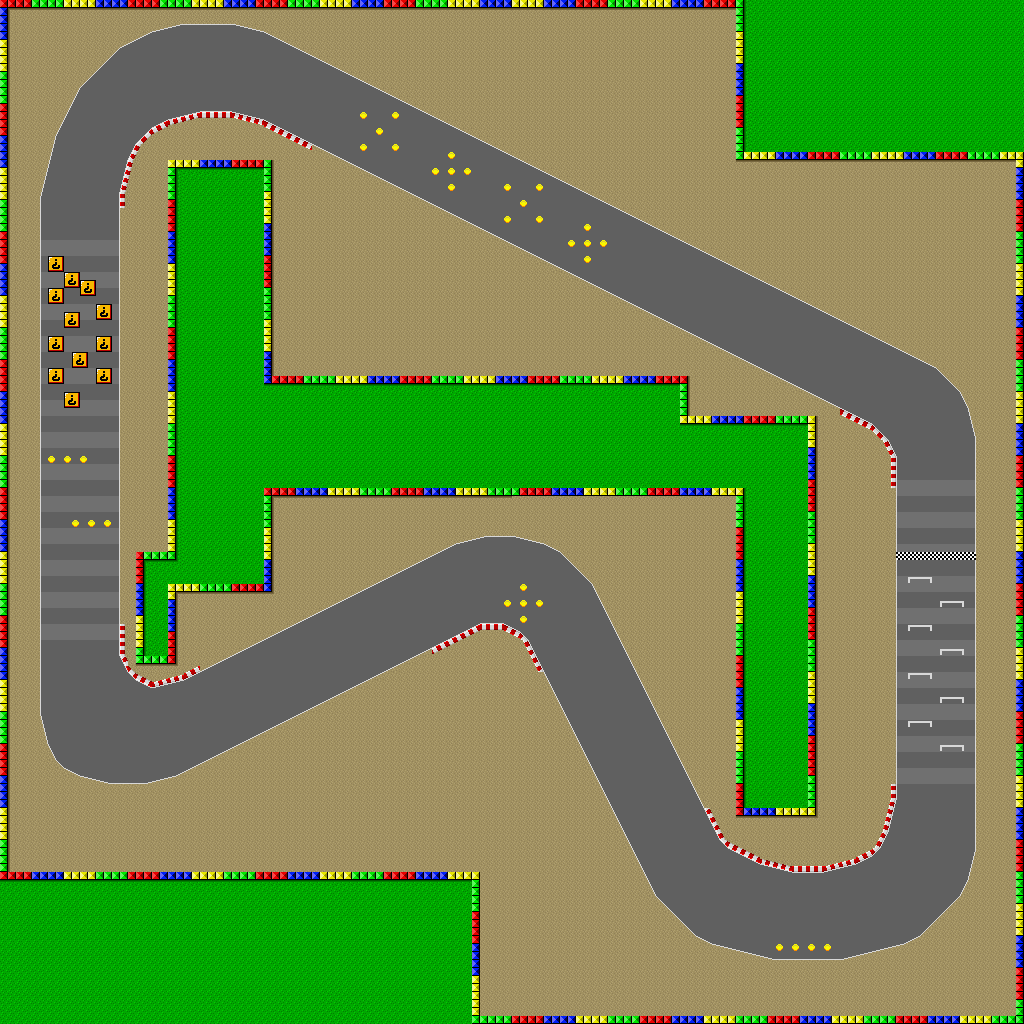A lightweight library to encode and read grayscale images, with Playdate support.
Librif stores images in raw binary data (default setting) or in a compressed format. If compression is enabled, the encoder uses a simple RLE algorithm which finds repeating patterns in the image. Librif is optimized to minimize RAM usage at runtime.
Install Pillow pip install Pillow (required for encoder)
The Python encoder supports the following commands:
-i--inputInput file-c--compressEnable compression algorithm-pmin--pattern-minSet the minimum pattern size for compression (default 8)-pmax--pattern-maxSet the maximum pattern size for compression (default 8)-pstep--pattern-stepSet the step used to find the pattern (default 2)-pngSave input image as png output-v--verboseEnable verbose mode
python encoder.py -i image.png (uncompressed)
python encoder.py -i image.png -c (compressed)
1024 x 1024px
| Raw image (grayscale) | PNG (RGB) | RIF compressed (grayscale) |
|---|---|---|
| 1 MB | 34 KB (96.6%) | 77 KB (92.3%) |
You can add it to your Playdate project by installing toybox.py, going to your project folder in a Terminal window and typing:
toybox add librif
toybox updateThen add toyboxes/toybox.mk to your existing makefile or use the toybox setupMakefile command to generate one.
Change the Makefile as follows
SRC += librif.c
# lua support
SRC += src/librif_luaglue.cSample code
#include "librif.h"
// set PlaydateAPI
librif_init(playdate);The C library has two functions to open and read an image.
nullable RIF_Image* librif_image_open(const char *filename, nullable RIF_Pool *pool);
bool librif_image_read(RIF_Image *image, size_t size, nullable bool *closed);The compressed image has corresponding functions.
nullable RIF_CImage* librif_cimage_open(const char *filename, nullable RIF_Pool *pool);
bool librif_cimage_read(RIF_CImage *image, size_t size, nullable bool *closed);Example
RIF_Image *image = librif_image_open("image.rif", NULL);
if(image != NULL){
while(1){
bool closed;
bool success = librif_image_read(image, (10 * 1000), &closed);
if(!success || closed){
break;
}
}
}Getting a pixel.
uint8_t color, alpha;
librif_image_get_pixel(image, x, y, &color, &alpha);You can also get a pixel from pixels to skip some security checks.
uint8_t color = image->pixels[y * image->width + x]Setting a pixel.
librif_image_set_pixel(image, x, y, 0, 255);librif_image_read, pass0size to read the entire file- Image properties:
hasAlpha,width,height - Properties
readBytesandtotalBytescan be used to track loading
Images are saved in memory with malloc, you can optionally create a RIF_Pool instance to load them into reserved memory.
// 1 MB pool
RIF_Pool *pool = librif_pool_new(1000 * 1000);
// open an image passing pool as 2nd argument
RIF_Image *image = librif_image_open("image.rif", pool);
// clear pool restoring original start address
librif_pool_clear(pool);
// free pool later
librif_pool_free(pool);// include librif and lua support
#include "librif_luaglue.h"
// set PlaydateAPI
librif_init(playdate);
// register lua classes
librif_register_lua();Example
local image = librif.image.open("image.rif")
image:read()In Lua there are two image objects librif.image and librif.cimage that share the same methods.
image.open(filename, [pool])open an imageimage:read([size])read the image, returns a tuple(success, closed)image:getPixel(x, y)get the pixel at x, y as a tuple(color, alpha)image:hasAlpha()image:getWidth()image:getHeight()image:getReadBytes()image:getTotalBytes()
librif.image object
image:setPixel(x, y, color, alpha)set the pixel at x, yimage:copy()returns a copy of the image
librif.cimage object
cimage:decompress([pool])decompress a cimage returning an image object
librif.pool object
pool.new(size)pool:realloc(size)pool:clear()pool:release()
You should call pool:release() to let Lua Garbage Collector release the object.
Format specification is subject to changes.
| Type | Detail |
|---|---|
uint8 |
Alpha support |
uint32 |
Image width |
uint32 |
Image height |
| Type | Detail |
|---|---|
| Non-alpha | 1 byte per pixel |
| Alpha | 2 bytes per pixel. uint8 for color, uint8 for alpha |
| Size | Detail |
|---|---|
| n_pixels * pixel_size | Pixels stored in a rows / columns layout |
Additional metadata.
| Type | Detail |
|---|---|
uint32 |
Number of cells columns |
uint32 |
Number of cells rows |
uint32 |
Pattern size |
uint32 |
Number of patterns |
| Size | Detail |
|---|---|
| n_patterns * n_pixels * pixel_size | Patterns pixels (see "raw mode") |
n_cells * uint32 |
Patterns indexes (0-based) as uint32 |



